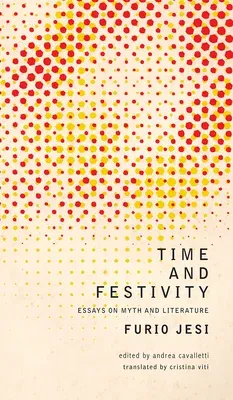Furio Jesi
(Author)Time and FestivityHardcover, 15 March 2021

Qty
1
Turbo
Ships in 2 - 3 days
In Stock
Free Delivery
Cash on Delivery
15 Days
Free Returns
Secure Checkout

Part of Series
Italian List
Print Length
224 pages
Language
English
Publisher
Seagull Books
Date Published
15 Mar 2021
ISBN-10
0857426303
ISBN-13
9780857426307
Description
Product Details
Author:
Book Format:
Hardcover
Country of Origin:
US
Date Published:
15 March 2021
Dimensions:
21.34 x
13.46 x
2.29 cm
ISBN-10:
0857426303
ISBN-13:
9780857426307
Language:
English
Pages:
224
Publisher:
Series:
Weight:
272.16 gm